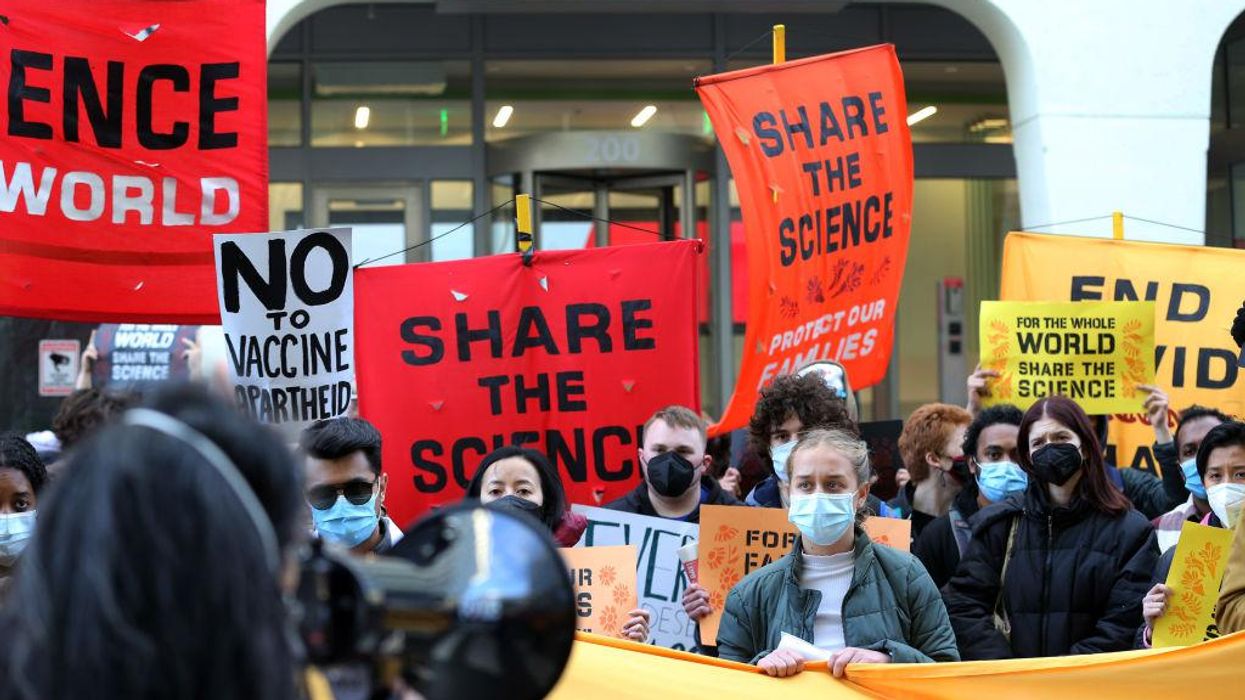
Jim Davis/The Boston Globe via Getty Images

The U.S. Food and Drug Administration's vaccine advisory committee heard testimony Tuesday that Moderna's COVID-19 vaccine may carry a higher risk of heart inflammation in young men than the vaccine produced by Pfizer/BioNTech.
A panel of outside experts met Tuesday to consider whether the emergency use authorization for Moderna's mRNA vaccine should be expanded to include children ages 6 to 17 years old. The advisory committee will consider expert testimony from FDA scientists and then vote on whether Moderna's shot should be approved for children alongside Pfizer's COVID-19 vaccine.
Data presented to the committee by Dr. Tom Shimabukuro, a vaccine safety official at the U.S. Centers for Disease Control and Prevention, suggested that people ages 18 to 39 had a higher risk of myocarditis if they took the Moderna vaccine compared to those who had received the Pfizer shot.
But Shimabukuro cautioned that these findings were not consistent across U.S. databases, and he emphasized that heart inflammation remains a rare vaccine side effect.
According to the CDC, as of May 26, 2022, there have been 635 reports of myocarditis in children ages 5-17 who took the Pfizer vaccine. Putting that number in context, Shimabukuro said there have been nearly 55 million total Pfizer vaccine doses administered over the same period. Most of those that developed heart inflammation problems were adolescent boys who had received a second vaccine dose.
All children who reported having myocarditis recovered at least somewhat after it was diagnosed, and 80.1% of those diagnosed fully, or probably fully, recovered, according to a CDC survey of health care providers that treated them.
Comparing the Moderna vaccine to the Pfizer vaccine, Shimabukuro said there were slightly higher reporting rates of myocarditis for Moderna and that the reporting rate was higher in males.
Data from three U.S. vaccine safety databases showed the risk of myocarditis and pericarditis in young males aged 18-39 was 1.1 to 1.5 times higher after the Moderna shot, he said.
More CDC data on 18- to 39-year-olds showed 4.41 excess heart inflammation cases per 100,000 who took the Pfizer vaccine compared to 6.27 excess cases per 100,000 for Moderna. The Moderna vaccine is administered in higher doses than the Pfizer vaccine.
The FDA also reviewed Moderna's studies showing the efficacy of the vaccine in children 6 to 17. Officials said the vaccine was 93% effective among adolescents 12-17 and 77% effective in younger children. While these results met the agency's criteria for success, FDA officials warned that a booster shot will likely be needed for children, just like adults, because the vaccine's effectiveness wanes over time.
If the advisory committee votes to approve Moderna's vaccine for children, the question will go back to the FDA which must decide whether to take the committee's recommendation.
The committee will meet again Wednesday to consider whether the Pfizer and Moderna vaccines should be approved for use in infants under 5.